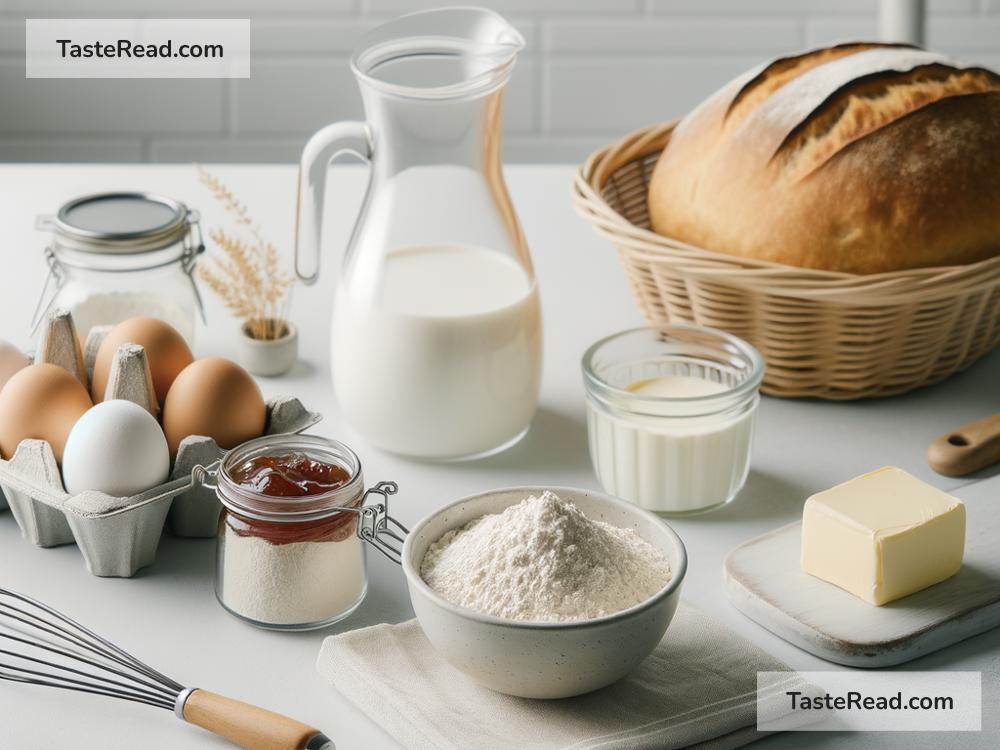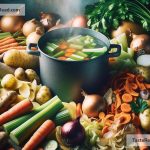How to Reduce Waste with Minimalist Baking
Baking is a form of art, a way of expressing love and creativity through delicious treats. However, amidst the joy of mixing, kneading, and decorating, it’s easy to lose sight of the waste that can accumulate. If you love to bake but want to tread lightly on the planet, embracing minimalist baking is a step in the right direction. Minimalist baking focuses on simplifying processes, ingredients, and tools to reduce waste and clutter, both in your kitchen and the environment. Here’s how you can embrace minimalist baking and contribute towards a healthier planet.
1. Streamline Your Baking Arsenal
A minimalist approach starts with decluttering. Take a look at your baking tools and equipment. Do you really need ten different piping nozzles or five types of whisks? Probably not. Keep tools that serve multiple purposes and donate or give away the rest. A mixing bowl, a whisk, measuring cups and spoons, a baking tray, and a silicon baking mat can cover a wide range of recipes. Opting for quality over quantity not only reduces clutter but also means you’re less likely to have to replace items frequently, which is better for the planet and your pocket.
2. Embrace Bulk Buying — Mindfully
Buying ingredients in bulk can significantly reduce packaging waste. However, the key is to buy only what you need to avoid food waste. Plan your baking projects and purchase accordingly. If you’re exploring new recipes, buy smaller amounts to avoid wastage if the recipe doesn’t turn out as expected. Stores that offer bulk purchases typically allow you to use your own containers, further cutting down on packaging waste.
3. Choose Sustainable Ingredients
Ingredients matter. Whenever possible, opt for local and organic ingredients. They’re not only fresher and tastier but also support sustainable farming practices. Choosing ingredients that are in season also reduces the carbon footprint associated with transportation and storage. Moreover, consider the environmental impact of what you bake with. For instance, plant-based options usually have a lower environmental impact compared to animal-based ingredients.
4. Master Multi-Purpose Recipes
Some recipes are incredibly versatile and can be the base for numerous variations. Mastering these can significantly cut down on the need for specialized ingredients that you may use only once. For example, a simple vanilla cake recipe can be adapted to create different flavors — lemon, almond, chocolate, etc. Similarly, a good basic bread dough can transform into pizza, rolls, or even cinnamon buns with minor adjustments.
5. Mindful Measurement and Preparation
Minimizing waste also means being meticulous in preparation and measurement. Misreading measurements or hastily preparing ingredients can lead to errors and wasted ingredients. Take your time to measure carefully and prep ingredients as you go. This not only ensures better results but also reduces the chances of waste.
6. Composting and Recycling
Even with the best intentions, some waste like eggshells, vegetable peels, and coffee grounds is inevitable. Composting is a fantastic way to give this organic waste a second life by turning it into nutritious soil for gardening. For non-compostable waste, be diligent about recycling. Many packaging materials like cardboard, glass, and certain plastics can be recycled, reducing the amount of waste that ends up in landfills.
7. Share and Donate
Baking is often associated with abundance, and sometimes that means more baked goods than you can reasonably consume. Instead of letting them go to waste, share them with friends, family, or neighbors. Many community organizations and shelters also welcome food donations. Sharing not only helps reduce waste but also spreads joy and supports your community.
8. Reflect and Learn
Minimalist baking, like all aspects of a minimalist lifestyle, is a continual learning process. Reflect on your baking habits regularly. What worked well? What could you do differently next time to reduce waste further? Maybe you realize you could use a silicon baking sheet instead of parchment paper or that a specific ingredient isn’t as versatile as you thought. Continuous learning and adaptation are key to maintaining a minimalist and waste-free kitchen.
Conclusion
Minimalist baking isn’t just about reducing clutter in your kitchen; it’s a mindful way of baking that respects the environment and promotes sustainability. By choosing quality over quantity, being mindful of the ingredients and resources we use, and reducing waste wherever possible, we can all enjoy the pleasures of baking without it costing the earth. So next time you preheat your oven, think not just about the delicious treats you’ll make, but also about the impact your baking has on the planet. Happy, sustainable baking!


